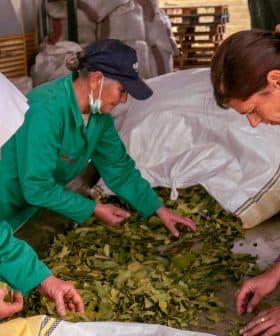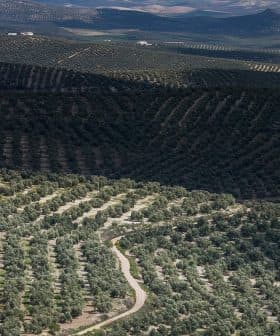Japan Extends Joint Research with Tunisia
A Japan-Tunisia collaboration will continue until 2021 with a focus on the development of food, cosmetic and pharmaceutical products.
 Olive trees in Tunisia
Olive trees in TunisiaJapan will continue investing in the Tunisian olive oil sector until 2021 based on studies conducted by Japanese and Tunisian researchers, revealing that Tunisian olive oil is rich in polyphenols. The project aims to develop new industry and increase exports of high value-added agricultural products, including the launch of a Tunisian olive oil label in Japan.
Japan will continue to invest in the Tunisian olive oil sector until 2021 following the first stage of studies undertaken by a team of Japanese and Tunisian researchers.
The studies were realized through a Japanese government program that promotes international joint research conducted by three Japanese research institutions (University of Tsukuba, Kyoto University, and Tokyo Institute of Technology) in collaboration with Tunisian researchers at the Center of Biotechnology of Sfax.
The SATREPS program is a collaborative effort between three Japanese government agencies: the Japan Science and Technology Agency (JST), the Japan Agency for Medical Research and Development, and the Japan International Cooperation Agency (JICA).
One of the studies revealed that all varieties of Tunisian olive oil, especially an olive variety from the north, are rich in polyphenols and contain often 10 times more than Italian and Spanish olive oils. Polyphenols are micronutrients rich in natural antioxidants which have numerous health benefits and can help prevent disease and illnesses.
The Tunisian project is slated to continue until 2021 under the title “Valorization of Bio-resources based on Scientific Evidence in Semi- and Arid Land for Creation of New Industry” with a total budget of 7.83 million Tunisian dinars ($3.21 million) granted by JICA.
By applying the results of the studies concluded during the first stage of the project first launched in 2009, the next stage will focus on the development of food, cosmetic and pharmaceutical products, the development of a production-to-export chain, and the promotion of exports of high value-added agricultural products which includes the launch of a Tunisian olive oil label in Japan.
Tunisia has a long tradition of olive oil production but the vast majority of its oil is exported in bulk, with Italy, Spain, United States, and France being its largest importers. The government aims to significantly increase exports of refined olive oil over the next five years, but production and export figures have been in decline for the first part of 2017.









